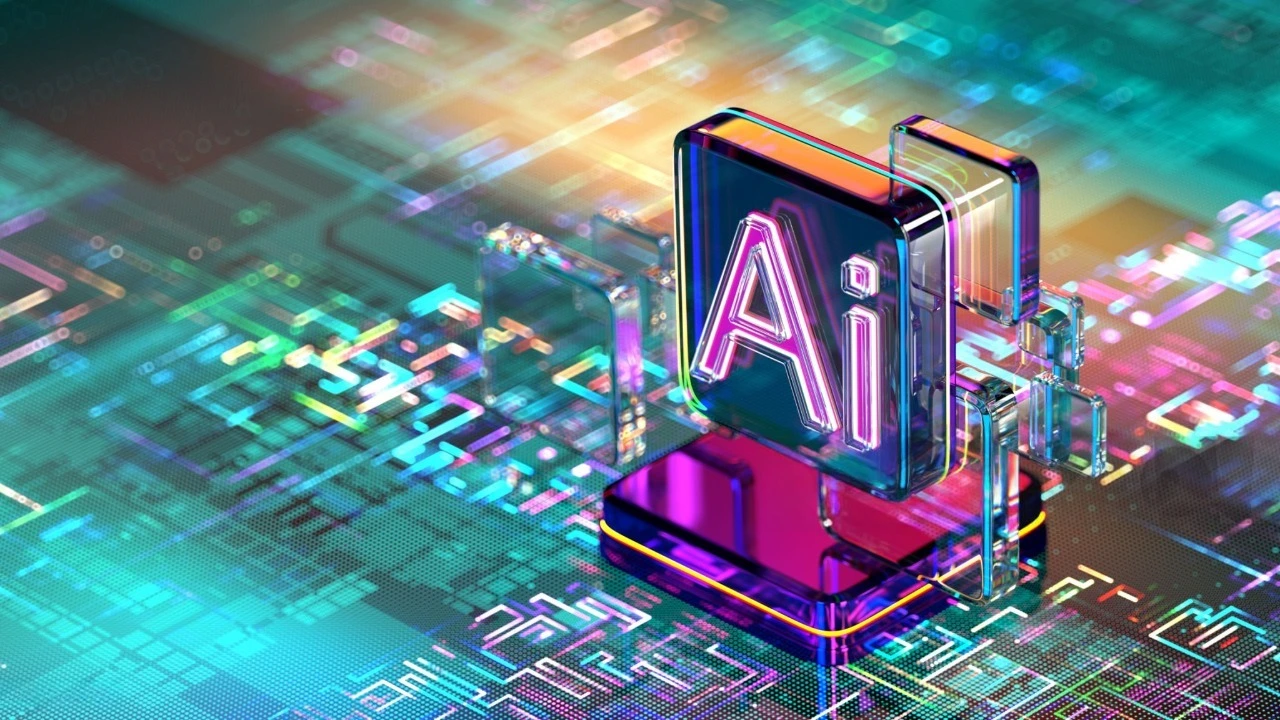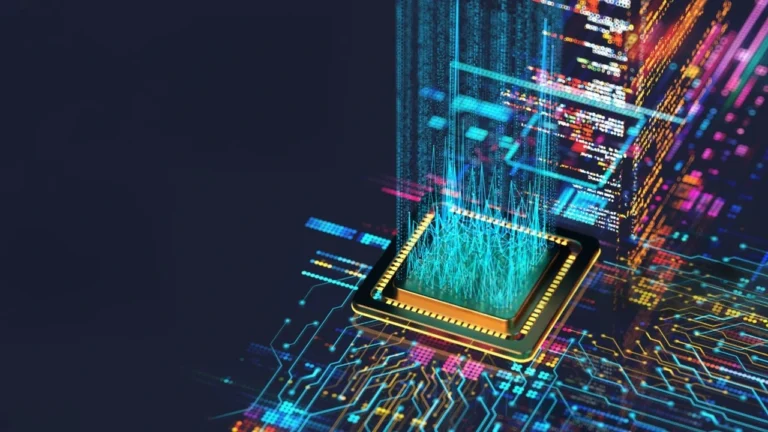Introduction
AI changes the way we work and live. Banks detect fraud faster. Companies use computers to handle their accounts due. AI findings are good for health care. There are still problems, though, like racism and ethics. Statista says that by 2025, 80% of businesses will be using AI. This piece talks about how AI is used in healthcare, banking, and handling contracts. It looks at AI and hacking, tweaks the rules for writing, and reads the Bible. People who read this book will learn how to get around AI’s issues and find interesting jobs. Are you ready to find out what AI does? Let’s look at what it can do and what its strengths are.
AI Applications in Business Sectors
Artificial Intelligence Fraud Detection In Banking
Banks utilize artificial intelligence to combat fraud. AI systems conduct real-time analyses of transactions. They are able to identify unusual patterns with outstanding speed. For instance, JPMorgan Chase employs AI to identify credit card fraud. This results in significant savings for banks each year. Machine learning models analyze customer behavior. They monitor unusual activities, such as significant transfers from unfamiliar devices. Accuracy is important—AI reduces false positives by 20% in comparison to previous methods. Biometrics, such as fingerprint scans, enhance security. AI also helps to ensure compliance with anti-money laundering laws. It notifies banks of any suspicious activities, thereby safeguarding customer accounts.
But problems do come up. Errors happen when the info isn’t good. People who hack try to trick AI systems. This is what banks use advanced data to stop. Models stay sharp with regular changes. For there to be no bias, training data must be varied. For example, skewed data could mark real deals as fraud. AI is used by banks like Wells Fargo to keep an eye on loan applications. This prevents financial losses caused by fraudulent loans. Alerts that come up in real time help stop scams before it happen. Banking is becoming safer as AI plays a bigger part. System info from devices will be combined in the future to make them more accurate. This keeps people and banks safe.
AI Fraud Detection Benefits
|
Benefit |
Description |
Impact |
|
Speed |
Analyzes transactions instantly |
Stops fraud in seconds |
|
Accuracy |
Cuts false positives with smart models |
Saves time and costs |
|
Compliance |
Meets anti-money laundering rules |
Avoids legal penalties |
|
Security |
Uses biometrics for authentication |
Protects customer accounts |
Artificial Intelligence In Accounts Payable
Artificial intelligence is transforming accounts payable. With AI, businesses can handle bills more quickly. It reads papers, checks funds, and finds mistakes. As an example, IBM’s AI takes care of chores related to accounts payable. This 30% lowers the price. AI checks that the info on invoices is correct. It shows any problems before the payments are sent out. Machine learning can identify patterns in bills. After this implementation, the finance teams will have more time to focus on other tasks. Companies like SAP use AI to streamline payments. Data quality is crucial. Mistakes happen when info isn’t accurate. Fix these errors with clean data platforms. Regular changes make AI work better. Automation frees up staff to focus on dealing with vendors. In the future, AI tools will be able to tell when payments are going to be late. They’ll offer fixes early on. AI saves money and makes things run more smoothly.
Artificial Intelligence in Contract Lifecycle Management
Contract lifetime management is changing because of AI. It takes care of things like writing and checking contracts automatically. It reads papers quickly with AI. It finds risks, like terms that aren’t clear. Salesforce utilizes AI to ensure adherence to contracts. This approach will save lawyers time. Machine learning identifies patterns in deals. Machine learning highlights errors prior to signing. Businesses ensure adherence to rules. AI handles many contracts. It’s important that the data is correct. Mistakes happen when info isn’t accurate. Companies keep their data tools clean. This makes things work better. AI expects that contract approvals will take longer than expected. It recommends making fixes soon. Workers pay attention to planning instead of paperwork. Tools in the future will better keep track of due dates. AI cuts costs by twenty-five percent. It lets you handle contracts better.
Overcoming AI’s Biggest Challenges
The Toughest Challenges To Overcome With Artificial Intelligence Are
There are many problems with artificial intelligence. The quality of the data is crucial. Models that are based on incorrect data are biased. For instance, AI that is biased could make mistakes while looking at loan applications. This damages both customers and banks. Another problem is openness. People want AI to make decisions that are easy to understand. People are worried about moral issues. People are afraid that AI will replace their jobs. Rules say that systems must be fair. Companies use a variety of data to fight bias. They create trust by using open algorithms. Risks to security are also important. Hackers go for AI systems. They are safe because of strong cybersecurity. It takes time and money to train AI.
There are solutions coming up. Businesses use free software to save money. They clean up data to make it less biased. For instance, Google gives out rules for AI ethics. These help make things fair. Regular audits find problems early on. Companies also teach their employees about AI. This makes people trust systems. AI development is guided by moral frameworks. They make sure that choices are in line with what people value. AI in the future will need better security. It’s helpful when businesses and regulators work together. AI gets more trustworthy as these problems are solved. It helps businesses and users in a big way.
Cyber Security Vs Artificial Intelligence: A Comparative Analysis
AI and Cybersecurity Synergy
Cybersecurity and artificial intelligence collaborate. Security systems are fortified by AI. It is capable of identifying issues in real time. For instance, Microsoft’s artificial intelligence analyzes network patterns. It promptly apprehends cybercriminals. AI algorithms are safeguarded by cybersecurity. AI systems are protected from intrusions by firewalls. Face scanning for logins is among the ways in which AI enhances authentication. This ensures the security of accounts. Nevertheless, AI and cybersecurity are distinct. Tasks are automated and learned by AI. Data and networks are safeguarded by cybersecurity. Together, they combat cybercrime. Artificial intelligence (AI) is implemented by organizations to identify potential threats. It detects peculiar activities, such as phishing attempts.
Securing AI itself is one of the challenges. Weak models are the focus of hackers. The presence of vulnerabilities is resolved through routine updates. Systems are safeguarded by robust credentials. Additionally, AI necessitates clear data to function effectively. False notifications are the result of inadequate data. Businesses such as Cisco integrate artificial intelligence (AI) and cybersecurity. They supervise devices for potential hazards. Staff training enhances system functionality. Future instruments will be more accurate in their predictions of attacks. A closer relationship between cybersecurity and artificial intelligence will develop. As a result of this collaboration, digital environments are rendered secure for all
AI Education and Career Opportunities
Best Online Masters in Artificial Intelligence
The need for skilled professionals grows because of AI. Online master’s degrees help people get ready for jobs in AI. It takes $10,995 to get a Master of Science in Computer Science online from Georgia Tech. It shows how to use machine learning and analyze data. They learn how to code in Python and how to use methods. The master’s program in AI at UT Austin is all about ethics. Spend $10,200 on it to get deep learning. Johns Hopkins has classes that are easy to change. Robotics and natural language processing are things that students learn. Focus varies between programs. Some stress learning how to code. Some teach business uses, like how to use AI in banks. Flexible plans are good for students who work. No need to visit the site.
Courses stress the quality of the facts. Clean data makes sure that models are correct. Bias happens when the data is bad. People who graduate work as data scientists or AI engineers. The average salary per year is $100,000. They get jobs at places like Google. Pick schools that have good teachers. Go to places like Coursera and read reviews. As you work on projects, you build real processes. For instance, students create AI that can spot fraud. Ethics training stops computers from being biased. Spend less on online courses. There are LinkedIn groups where students can find work. In tech, AI skills are in high demand. With these degrees, you can get interesting jobs. AI helps people advance in their careers.
Time organization is one of the problems. You have to be disciplined to learn online. Courses stay up to date with regular changes. Students do better when they have teachers to help them. AI for healthcare is taught in programs like the one at Illinois Tech. They talk about analyzing patient data. People who want to work in AI in the future will need a wide range of skills. Online master’s degrees help students a lot. They use both theory and practice. Graduates determine the direction of AI in many fields.
Best Schools for Artificial Intelligence
The best schools for artificial intelligence teach future leaders. Stanford University is the best place to study AI. It teaches machine learning through its on-campus programs. Students make things like chatbots. MIT has some of the best AI laboratories in the world. The classes cover both ethics and algorithms. Every year, tuition costs $50,000. Carnegie Mellon is great at robotics. It stresses AI systems that are fair. Students learn how to not be biased. The goals of programs are different. Scientists do well at schools that emphasizeresearch. The useful ones get you ready for computer careers. Graduates get jobs at Tesla or Amazon. On-campus programs let you meet new people.
You need to know math and how to code to work with AI. Schools teach Python and mathematics. Projects deal with genuine problems, like spam filters. The quality of the data is important. Models are hurt by biased data. For instance, faulty data could make loans look better than they are. This is what ethics classes are for. Harvard’s AI department looks into AI’s place in society. Every year, it costs $35,000. UCLA has engineering programs that focus on AI. These get students ready for the real world. Scholarships help lower costs. Campus events bring AI startups together. Jobs in artificial intelligence are growing quickly. Every year, data scientists make $120,000.
One of the problems is the high cost of school. The cost of living adds up. Students need to plan. Internships make resumes better. Purdue is a smaller institution that has a great AI program. They are cheaper. Faculty mentors help with research. AI is used in both healthcare and finance. Schools get pupils ready for a variety of jobs. The best programs mix theory and practice. They are important for AI’s future around the world.
Artificial Intelligence In Healthcare Courses Free
Free classes educate AI in health care. Coursera has alternatives that are easy for beginners. Courses include patient data and diagnostics. For instance, Stanford Online teaches how to use medical imaging. Students learn how AI looks at X-rays. edX offers free courses in data analysis. These illustrate how health record systems work. You don’t need to know how to code. Students who are busy can take courses that fit their schedules. They help people get jobs in healthcare AI. Graduates get jobs in hospitals or tech companies. One of the problems is remaining motivated. Time management helps students stay on track. Free classes are a good way to save money. They learn new skills quickly. More and more employment is being created by AI in healthcare.
FutureLearn and other platforms offer lessons that are useful. Students learn about AI to help patients. Medical AI courses teach ethics. This makes ensuring that decisions are fair. Free resources draw in a wide range of learners. They get people ready for jobs like health data analyst. More people want these occupations. AI helps hospitals make diagnoses faster. Free classes are a good way to get ahead. Learners feel more sure about AI tools. New technology will be covered in future classes. These materials make AI available to everyone.
AI Writing Conventions
Should Artificial Intelligence Be Capitalized?
Writers want to know if “artificial intelligence” should be capitalized. A lot of style guides say that it is not a good idea. The standards for both APA and Chicago styles say to use lowercase letters for the word “artificial intelligence.” It is a common noun, like “computer.” Please use capital letters in names like “Artificial Intelligence Journal.” MLA agrees. Keeping things the same helps keep things clear. For example, “machine learning” is still in lowercase. Writers, please use style guides to make sure you get it right. This makes sure that documents stay clear. Inconsistent capitalization can make things look messy. Tech writers do better when they have clear rules. They give you professional-level content. Terms are straightforward for readers to understand. Following guides builds trust in writing.
It’s also vital to think about the situation. It’s okay to use lowercase letters when writing casually. Formal reports follow rules that have already been set. Writers often use apps like Grammarly to proofread their work. These swiftly find mistakes. In technology, being clear is very important. As AI terms change, manuals need to be updated to reflect these changes. Writers stay up-to-date to avoid making mistakes. Using the right capitalization makes text look better. It shows that you have thought over the specifics carefully. This is important for articles or reports.
AI and Religious Perspectives
What Does The Bible Say About Artificial Intelligence
Does the Bible say anything about AI? No, but Christians do grasp similar things. Some people see AI as a tool for people. Genesis talks a lot about how responsible humans are. AI raises ethical questions. For example, can robots replicate people’s souls? Most of the time, they say no. AI could transform freedom. This makes some Christians nervous. Some people think that AI is a step forward. It helps with things like figuring out what diseases are. Theologians don’t agree on what AI’s moral role should be. They want to know if the decisions AI makes are in line with their beliefs.
Churches discuss how AI will affect the way people work. People worry when they lose their jobs. The ideas in these presentations come from the Bible. Fairness and kindness impact how people see things. AI in healthcare is like diagnostics in that it is meant to aid people. But leaders are fearful that AI might be biased. They work for moral codes. Christian scientists are studying what AI can’t do. Not machines, but people have moral value. These talks will decide what AI will be like in the future.
Conclusion
AI transforms the way people work, handle money, and get health care. It finds fraud, executes chores on its own, and speeds up the process of finding problems. There are still concerns with ethics and bias. Free courses can help you get a job in AI. AI and cybersecurity protect digital spaces. Writing rules make things clear. Beliefs founded on faith assist us in figuring out what’s right and wrong. AI has a lot of different paths it could take in the future. Think about what it can do and tell others what you think. Please leave a comment and tell us what you think about AI.


